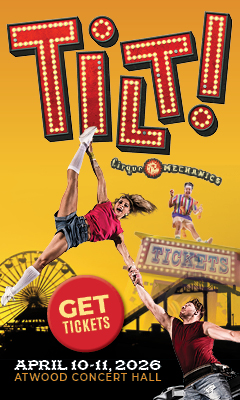25 Ways to Make Math Fun
By Janeen Lewis

Does your elementary-aged child suddenly get a stomach ache the day of a math test? Maybe your middle schooler constantly declares “I hate math!” or your high schooler doesn’t like Algebra because he or she doesn’t see how it connects to real life.
If any of this sounds familiar, there is good news. Recent research shows that despite what they may think, most students can succeed at high levels in math. While it may be hard to disguise a dislike of math, if parents model a positive outlook, children are more likely to feel the same way. Research also shows that students like math more when they understand how it applies to their future.
Fun Math Apps
PRESCHOOL
MOOSE MATH BY DUCK DUCK MOOSE:
Includes games that teach counting, addition
and subtraction.
DRIVE ABOUT NUMBER NEIGHBORHOOD:
Kids travel through a seaside neighborhood and stop at different shops. Each shop has a different math game.
SUDOKU JUNIOR:
Sudoku puzzles for beginners, but can challenge players
of all ages.
ELEMENTARY SCHOOL
PETER PIG’S MONEY COUNTER:
By Visa, this app teaches students to identify, count and save money. Includes fun facts about U.S. currency.
MARBLE MATH JUNIOR:
Students solve math problems as they roll their marbles through mazes.
CRAZY TIMES TABLES:
Supports development of fluency in times tables.
MATHMATEER:
Students do math to earn money to build virtual rockets.
CHICKEN COOP FRACTIONS:
Helps children develop strategies for solving problems involving fractions.
MIDDLE/HIGH SCHOOL
UNIT CONVERTER:
This app converts currency, data, energy, power or temperature.
MATH REF:
Helps find formulas across multiple disciplines, but focuses on algebra, geometry and calculus.
WOLFRAMALPHA:
Finds formulas, gives graphic representations and shows how to get solutions to math problems.
META CALCULATOR:
A graphing, scientific, matrix and statistics calculator app, this will help in those challenging upper-level math classes.
KHAN ACADEMY:
Detailed lessons and practice for learners in early math through Calculus.
Here are 25 easy ways parents can make math fun, interesting and relevant, and ultimately help children become better at it.
1. Use measuring and fraction skills when you bake or cook with your children, to show the relevance of math in their everyday life.
2. At the grocery, have your child figure out how many pounds of produce to get without going over a certain dollar amount. For example, say “Please weigh and bring me $3 worth of Granny
Smith apples.”
3. Study and graph weather. Make bar graphs, circle graphs or pictographs for sunny, rainy, cloudy or snowy days. Find the
mean, median, range and mode for the high and low temperatures each month.
4. Research cool careers that use math – architect, astronaut, fashion designer, forensic analyst and computer programmer. For ideas, check out Texas Instruments’ “STEM Behind Cool Careers”.
5. Learn about the lives of famous mathematicians and what they accomplished (for instance, Albert Einstein, Isaac Newton and John Nash, from “A Beautiful Mind").
6. Let your child plan a special dinner. Then give him a budget to shop for the ingredients, not going over the budget.
7. Make technology your friend. Games and apps make learning math facts more fun than flash cards and drills. For homework help, try Didax’s virtual manipulatives .
8. If your child is struggling in math, ask your child’s teacher to help identify problem areas and recommend a tutor, or call the math department at your local university to find math majors willing to tutor. Introduce your teen to a fun math club.
9. Plan a trip together, calculate the miles you will travel at a designated speed. Decide how long it will take to get there.
10. Give your child an allowance to manage. Together decide how much they will save, spend and give away.
11. If your child is a teen with a job, help them write a budget and open a savings account.
12. Teach your child mental math tricks. These are like magic tricks in the math world, breaking down calculator-size problems into problems that can be solved mentally. Try Thoughtco.com for
9 Mental Math Tricks and Games .
13. Sing songs and watch math music videos. Check out “Schoolhouse Rock!” (“Multiplication Rock” and “Money Rock”) and “Numberock.” They are catchy ways to teach important math concepts.
14. Read math picture books like “The Everything Kids' Math Puzzles Book,” "Bedtime Math," “The Grapes of Math,” or “How Big is a Foot?”
15. Have your tween or teen pick out the make, model and year of a car they would like to buy when they are 18. Look up the value of the car and figure out how much they will have to earn every week until they are 18 to buy the car.
16. Walk around your house and find examples of parallel and perpendicular lines in doorways, walls, furniture and more.
17. Go on a shape hunt. Find various geometric shapes around your house and yard. Draw or take photographs and label the shapes and what they comprise (for instance, the roof, the mailbox, the deck railing) and make your own version of a book like Tana Hoban’s “Shapes, Shapes, Shapes.”
18. Have daily countdowns to special events, or do a ___shopping days until Christmas.
19. Challenge both genders in math. Don’t promote gender stereotypes that suggest boys are better at math and girls are better at reading. Research shows that while girls do well in math in middle school and high school, women are underrepresented in post graduate STEM (science, technology, engineering and math) jobs.
20. Play board and card games that inspire mathemathical thinking (for example Uno, Mathopoly, and Crazy Eights). (See more game ideas in our 13 Board Games that Teach Kids Math and Money Skills article.)
21. Tell math jokes. Yes, they can be corny, especially for teens, but keep it humorous and light, and they may just remember the vocabulary.
22. Have fun with food. Cut food into fractional parts and use the food fractions to introduce equivalent fractions. For younger children, cut sandwiches and pizzas evenly and talk about equal parts.
23. Take a tour of your local bank. Talk to your child about words like loan, interest and principal.
24. Celebrate special math days like the 100th day of school. On Pi Day talk about what it means and why it is important. Make your child’s favorite pie.
25. Keep math resources on hand. Math tools like rulers, seamstress tapes, tangrams, pattern blocks, play money, fraction bars, counters and geometric shapes are great for kids to make discoveries with while playing. Also, keep a good math dictionary on your bookshelf to help with terms you may have forgotten.









